
 Flash News
Flash News
Italy tightens rules for skateboard traffic
Unusual for the time, dense fog covers the coast of Vlora
Accident on the Shkodra-Lezhë axis, one dead and 3 injured
Berisha congratulates Trump on US independence: Celebration that comes after victory over the Ayatollahs' regime
Weapons trafficked from Kosovo to Albania, two arrested, 8 pistols seized
When honor 'kills' more than violence, Lediona Braho for Politiko: Incest, a silent problem in Albanian society
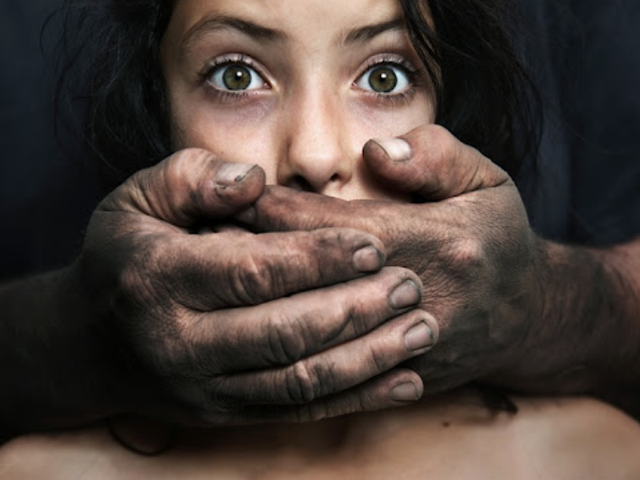
By Kristina Tepexhiku
Incest in Albanian society remains a dark taboo about which society chooses to remain silent. Within the walls of the home, where the child feels safest, the most horrific abuses often occur, which the victims cannot scream about and the family chooses to keep silent. Shame, fear of judgment, lack of trust in institutions and a number of other factors encourage incest not to be reported.
The most recent case is that of a 12-year-old girl from Patos. The minor was sexually abused for 7 years by her father. A case of incest that shocked public opinion.
Lediona Braho, a psychologist, in an interview with Politiko.al clearly describes the reality and factors that make incest a silent problem for Albanian society.
"The patriarchal structure and norms inherited across generations often mean that preserving "family honor" is prioritized over protecting the victim. Likewise, shame, fear of judgment, economic dependence of family members, lack of trust in institutions, institutional passivity, little or no education on rights, etc. can make it difficult to report violence in general and sexual violence in particular," Braho told Politiko.al.
Abuse causes profound consequences for victims, which negatively affect their ability to build healthy relationships in the future. For Politiko.al, Braho listed some of the consequences that abuse leaves on victims .
"The trauma of sexual abuse has a profound and long-lasting impact on the mental and emotional health of the victim. Feelings of shame, guilt, and fear are the main ones. The abused person may also develop anxiety, depression, post-traumatic stress disorder, sleep disorders, etc.
Self-confidence and the ability to trust and build healthy relationships are greatly affected.
"In the most severe forms of sexual violence, trauma can affect the individual's identity and mental development, especially if the victim is young and when the abuser is a caregiver figure ," said Lediona Braho.
Often, family members close to the abuser choose to deny or reject the truth. For some, preserving the family image is more important , as Lediona Braho has pointed out, but there are also other psychological and social factors that lie behind this rejection.
“Denial of the truth by family members can often be a form of psychological defense (an unconscious defense mechanism) that helps them avoid facing the painful reality. Denial protects against the emotional shock that occurs when a close family member is abusive.
"On the social side, for some families, preserving the public image is more important than the well-being of the victim. This is extremely harmful. Fear of exclusion, judgment by others or the destruction of the "family image" pushes many people to remain silent, especially in more closed societies," Braho told Politiko.al.
The lack of institutional involvement, community silence, or education in schools become obstacles to denouncing incest and raising awareness about how victims should act in the face of their abuser.
Lediona Braho emphasized that there must be cooperation, interaction between institutions , to protect victims of abuse.
“Institutions must have an active and coordinated role. At institutional levels, training of professionals should be carried out - police officers, psychologists and social workers, teachers, doctors, nurses, etc. Each professional must be equipped with the knowledge and skills to recognize the signs of abuse and violence, as well as to react quickly and safely to the victim.
Schools should promote human rights education and teach children how to protect their bodies, personal boundaries, and how to recognize and report inappropriate behavior to adults and authorities.
The community must play a role in promoting the rights and protection of children, as well as in punishing abusers. Speaking out and education help break the silence and normalize help-seeking.
"So, cooperation between all institutions and a well-coordinated system is necessary, which trusts the victim and acts for her protection ," Braho told Politiko.al.
Latest news




Italy tightens rules for skateboard traffic
2025-07-04 17:20:18

Unusual for the time, dense fog covers the coast of Vlora
2025-07-04 16:48:01


Accident on the Shkodra-Lezhë axis, one dead and 3 injured
2025-07-04 16:14:19
Albania with fewer requests for asylum and Albanian citizenship in 2024
2025-07-04 16:06:57

Albania last for quality of life, DP: Technical government is the solution!
2025-07-04 15:42:30
Nico Williams says "No" to Barcelona, signs with Athletic Club until 2035
2025-07-04 15:33:35
Fires in the country, four fires are still active, what is the situation?
2025-07-04 15:24:20

Summer brings big changes for these 4 zodiac signs
2025-07-04 15:00:04
Osmani: MPs need to agree to a secret ballot for the Speaker of Parliament
2025-07-04 14:51:09
Serious accident on the Peqin-Elbasan axis, two injured
2025-07-04 14:37:56

GJKKO leaves in force the security measure for the head of the KPP
2025-07-04 13:58:17
Who will replace Ilir Meta and take over the leadership of the PL?
2025-07-04 13:50:36
Berisha: Dismissal of directors in Vlora, another act of 'scapegoats'
2025-07-04 13:41:46




Librazhd/ In a serious psychological state, the young man consumes pesticides
2025-07-04 13:05:07


Weapons trafficked from Kosovo to Albania, two arrested, 8 pistols seized
2025-07-04 12:33:28
Konsumimi i tepërt i çokollatës, ja cilat janë dëmet që shkakton në organizëm
2025-07-04 12:23:35

Fires in the country, 21 fires in the last 24 hours, 4 still active
2025-07-04 12:00:19
WB calls for debt transparency: Albania to publish details of every loan
2025-07-04 11:50:05
Changes in the State Police, new names expected to lead 5 police stations
2025-07-04 11:40:06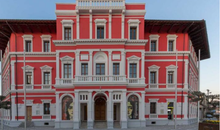
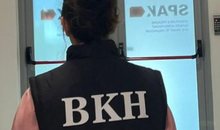
The race for the head of the BKH, the third phase on July 11
2025-07-04 11:20:23
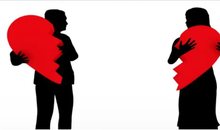
Toxic phrases that show your relationship is in trouble
2025-07-04 11:00:10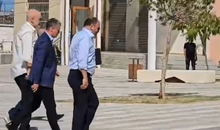
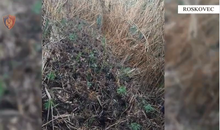
2 brothers arrested in Roskovec, cultivating narcotic plants
2025-07-04 10:38:08

Celebrating his 61st birthday today, Rama is surprised at the pink headquarters
2025-07-04 10:21:46
Suspended from duty 4 days ago, Jonaid Myzyri appears before the Criminal Court
2025-07-04 10:16:27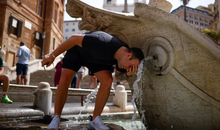
Heat wave/ 5 deaths in Italy from high temperatures
2025-07-04 10:07:55
Economy slows, telecommunications joins agriculture and industry in recession
2025-07-04 09:58:13


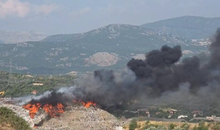
Fire continues at Elbasan incinerator, toxic smoke endangers citizens' health
2025-07-04 09:19:06
The USA celebrates its 249th anniversary of Independence
2025-07-04 09:09:22
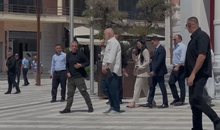
After Rama's ultimatum, all directors of the Vlora municipality resign
2025-07-04 08:46:30
Russia, the first country in the world to recognize the Taliban government
2025-07-04 08:37:20
10 facts about the 10th legislature!
2025-07-04 08:21:35
Foreign exchange/ How much foreign currencies are bought and sold today
2025-07-04 08:01:50

Weather forecast for today
2025-07-04 07:36:43
"Don't be afraid", here's what the stars have predicted for each sign
2025-07-04 07:21:48
Morning Post/ In 2 lines: What mattered yesterday in Albania
2025-07-04 07:03:17
Bushati: Zegjineja, a book piloted by Rama
2025-07-03 22:57:30

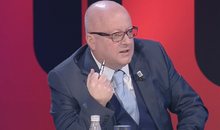


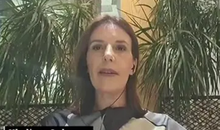

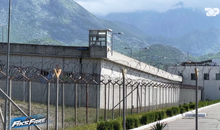

Greece imposes fee to visit Santorini, how many euros tourists must pay
2025-07-03 20:50:37
Don't make fun of the highlanders, Elisa!
2025-07-03 20:43:43
Gunfire in Durres, a 30-year-old man is injured
2025-07-03 20:30:52

The recount in Fier cast doubt on the integrity of the vote
2025-07-03 20:09:03


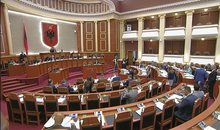

Heatwave has left at least 9 dead this week in Europe
2025-07-03 19:00:01

Oil exploitation, Bankers accused of 20-year fraud scheme
2025-07-03 18:33:52
Three drinks that make you sweat less in the summer
2025-07-03 18:19:35
What we know so far about the deaths of Diogo Jota and his brother André Silva
2025-07-03 18:01:56



Another heat wave is expected to grip Europe
2025-07-03 17:10:58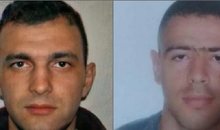

Accident on Arbri Street, car goes off the road, two injured
2025-07-03 16:45:27

Accused of two murders, England says "NO" to Ilirjan Zeqaj's extradition
2025-07-03 16:25:05
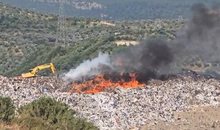



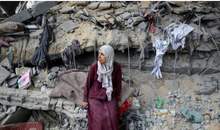
Gaza rescue teams: Israeli forces killed 25 people, 12 in shelters
2025-07-03 15:08:43
Diddy's trial ends, producer denied bail
2025-07-03 15:02:41

